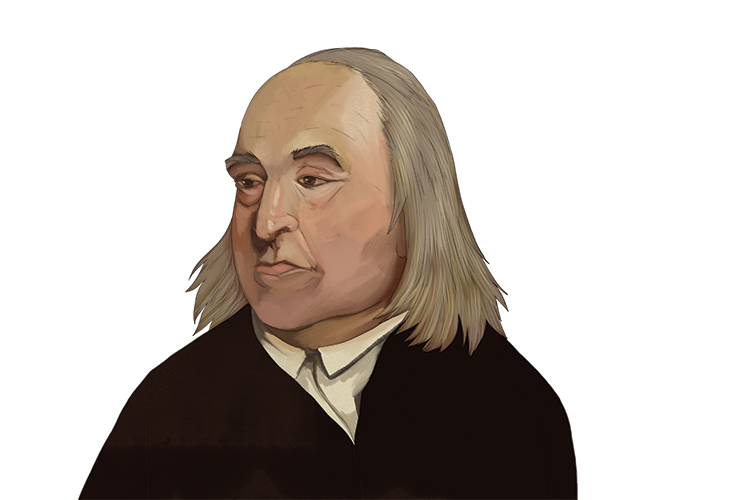Principle of Utility – The concept of acting for the greater good for most people
Note: Acting for the greater good includes removing a dangerous criminal from society in order to protect others.
To remember the meaning of the term Principle of Utility, use the following mnemonic:
She printed out simple signs for the utility (principle of utility) washroom to remind her that acting for the greater good brings happiness.

NOTE: Jeremy Bentham, the founder of the principle of utility, said that actions are right if they bring happiness to most people and wrong if they tend to produce the reverse.
Happiness, he said, = pleasure and the absence of pain.
Unhappiness, he said, = pain and the absence of pleasure.

The principle of utility states that the most moral action is the one that gives the greatest amount of pleasure or happiness to the greatest number of people.
If actions produce the greatest pleasure, then they are right; if they produce more pain than pleasure to more people, then they are wrong.
The principle of utility is not about a person's intentions, but the consequence of the person's actions.
By closely studying the results of actions, people can predict the outcomes of actions, and therefore decide more intelligently whether to act.
Followers of many different religions believe that God is infallible and always chooses what ultimately proves to be the best course of action for people, even when it seems to cause hardship and pain.




